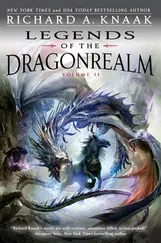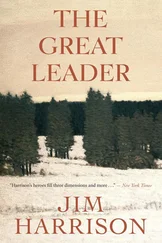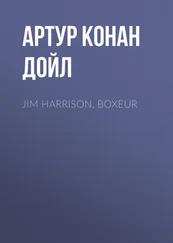Jim Harrison - Legends of the Fall
Здесь есть возможность читать онлайн «Jim Harrison - Legends of the Fall» весь текст электронной книги совершенно бесплатно (целиком полную версию без сокращений). В некоторых случаях можно слушать аудио, скачать через торрент в формате fb2 и присутствует краткое содержание. Жанр: Классическая проза, на английском языке. Описание произведения, (предисловие) а так же отзывы посетителей доступны на портале библиотеки ЛибКат.
- Название:Legends of the Fall
- Автор:
- Жанр:
- Год:неизвестен
- ISBN:нет данных
- Рейтинг книги:5 / 5. Голосов: 1
-
Избранное:Добавить в избранное
- Отзывы:
-
Ваша оценка:
- 100
- 1
- 2
- 3
- 4
- 5
Legends of the Fall: краткое содержание, описание и аннотация
Предлагаем к чтению аннотацию, описание, краткое содержание или предисловие (зависит от того, что написал сам автор книги «Legends of the Fall»). Если вы не нашли необходимую информацию о книге — напишите в комментариях, мы постараемся отыскать её.
Legends of the Fall — читать онлайн бесплатно полную книгу (весь текст) целиком
Ниже представлен текст книги, разбитый по страницам. Система сохранения места последней прочитанной страницы, позволяет с удобством читать онлайн бесплатно книгу «Legends of the Fall», без необходимости каждый раз заново искать на чём Вы остановились. Поставьте закладку, и сможете в любой момент перейти на страницу, на которой закончили чтение.
Интервал:
Закладка:
In the morning Tristan awoke and heartlessly refused to commiserate with Alfred when a messenger came to bring him to the hospital tent. He wrote a note and taped it to the canister saying, "Dear Father, this is all I can send home of our beloved Samuel. My heart is broken in two as yours will be. Alfred will bring it back. You know that place he should be buried up near the spring in the canyon where we found the horns of the full curl ram. Your son Tristan."
Then Tristan went mad and there are still a very few old veterans up in Canada that remember his vengeance, because he was captured and restrained before it reached full flower. Tristan and Noel first feigned new seriousness as soldiers and volunteered for the scouts on nightly reconnaissance missions. At the end of three nights seven blond scalps hung in various stages of drying from their tent pole. On the fourth night Noel was fatally wounded and Tristan reached camp at mid-morning with Noel over the pommel of his saddle. He rode past crowds of soldiers to his tent where he laid Noel on his cot and poured brandy down his lifeless throat. He sang a Cheyenne medicine song One Stab had taught him and a group of soldiers gathered around the tent. Alfred was brought on a stretcher by the commanding officer to reason with Tristan. When they opened the tent flap Tristan had made a necklace of the scalps and had laid his skinning knife and rifle across Noel's chest. They put him in a straitjacket and sent him off to a hospital in Paris where he escaped within a week.
The doctor who attempted to treat Tristan in Paris was a young Canadian from Hamilton who was given the psychiatric ward somewhat by default. In his postgraduate studies at the Sorbonne he had dabbled a bit in this new science of behavior but was ill-prepared for the shell-shocked and hapless victims of fear that arrived daily. His youth and adopted Parisian cynicism at first led him to believe that the men were merely cowards, but their odd behavior soon disabused him of that notion. They were traumatized puppies who either cried out for their mothers at night or retreated into a permanent and inconsolable silence. The doctor so doubted his ability to knit up their souls that he became almost bored with his patients and did all he could to have them shipped home. Thus he was fascinated with the arrival of Tristan when the ambulance driver advised him that a true "crazy" was waiting to be unloaded. The doctor sent attendants and read the report from Tristan's commander. He felt himself oddly unmoved by the scalpings and was surprised at the commander's horror. How could mustard gas be considered normal warfare and not scalping, in reaction to the death of a brother? All the doctors had been prepped on the medical complications of mustard gas which in fact constituted the beginning of truly modern warfare. The doctor had studied the classics at Oxford and felt himself learned on the subject of vengeance. He had Tristan brought to his office, excused the attendants and released the man from his straitjacket for which he got a polite "Thank you" and "May I have a drink?" The doctor loaned Tristan a uniform and they walked through the Bois de Boulogne to a small café where they ate and drank in silence. Finally the doctor said that he was aware of what had happened and there was no need to talk about it. Unfortunately it would take a number of months to process Tristan out of the army and send him home but he would do the best he could to make Tristan's stay as pleasant as possible.
It took several weeks for the news to reach Montana. One afternoon late in February on a day that was cold but sunny and clear after a storm had abated, Pet was driven by one of the new hands to Choteau for groceries and to pick up the mail. Ludlow wiped the frost from a kitchen window and stared at the mere ounce of sun he figured to be hovering above the bluish snowbound shadows of the barn. Decker and One Stab sat at the table drinking coffee and arguing about altitude with maps spread before them. One Stab was correcting the maps because he had covered the area from Browning to Missoula with a Cree friend known reverently as One Who Sees As A Bird, a man with an uncanny topographical perception of territory. One Stab disliked the altitude numbers attached to mountains. How high above which of the seven seas Tristan had told him about? What did the numbers mean if there were no sea near them? Some large mountains have no character while certain smaller ones are noble and holy places with good springs.
Then One Stab released them from the argument by asking Decker to read to him from In the Grip of the Nyika by J. H. Patterson who had also authored The Man-Eaters of the Tsavo, both books about adventures hunting and exploring in East Africa by the British colonel. Decker was bored by the books but Tristan had started years before and One Stab would close his eyes and listen with deep satisfaction to his favorite parts, including the lions that would jump on a moving flatcar to grab railroad workers to eat, the rogue elephant with one tusk that gored the horse named Aladdin, and best of all, the rhinos that died in great numbers from charging the new train that passed through their territory. The latter gave One Stab visions of thousands of buffalo charging the Northern Pacific railroad and tipping over the train. Many years before when he was involved in the tattered remnants of the Ghost Dance movement, One Who Sees As A Bird told him that he had created a new buffalo by throwing a buffalo skull in a sulphurous fumarole at Yellowstone when Ludlow measured the great waterfalls for the government. The trip had been humorous to One Stab who looked at the great mass of falling water and yelled numbers until the disquieted Ludlow asked him to be quiet. Tristan had promised to take him one day to the place where the animal fights the train.
Pet came in the door stomping the snow from her boots. She handed Ludlow the letter from Tristan and looked away. So did Decker. Only One Stab watched Ludlow open the letter, not fearing the worst possible or probable because he owned the Cheyenne sense of fatality that what had happened had already happened. You couldn't change it and trying to was like throwing stones at the moon.
Still very much in his late prime Ludlow grew old overnight. His stunned grief lapsed in and out of anger, and he took to drink which exacerbated his remorse. In a certain state of drunkenness his anger would turn into rage and this broke the threads of his vigor as if his tendons had been sprung, and he became stooped and careless of his appearance. He read Tristan's fatal letter so many times it became frayed and soiled. When the official letter of condolence came he did not open it nor did he respond to his wife's daily stricken letters. He was not beside himself so much as he was submerged in his own powerlessness. And how could they lock Tristan up before he scalped every Goddamn Hun on the continent. And what was this mustard gas that killed so that men ran around helplessly with blinded eyes and burning lungs and the horses screamed under them. The world was no longer fit for a war and he privately seceded from it. Pet mourned and little Isabel stayed out of the way, reading children's stories to One Stab who one evening joined his friend and mentor in drinking, not spitting it out for a change. But within an hour Decker had to restrain him, then give him more drink so that he would sleep and carry him to his hut after One Stab sang a song in Cheyenne about Samuel's life and his forest hikes and microscopes that revealed invisible worlds, then moved into the Cheyenne death song at which Ludlow broke down not having heard the song since forty years before in the Mauvaises Terres when a scout had died.
In Paris Tristan began to plan his escape after the first night in the ward, the noise of which was a symphony of the deranged. Unlike Ludlow who was wealthy and of a generally sentimental nature, the wealth in recent years protecting him from the actual machinery of civilization, Tristan's guilt was specific and limited to the dead body of his brother, the heart sunk in a canister of paraffin. Only Alfred as a child of consensual reality escaped this guilt. So Tristan told the doctor by the third day that he could not bear the asylum and would travel somehow to his grandfather's in Cornwall. The doctor said you can't do that but without conviction. He spoke of the matter to his superior officer who knew of Ludlow's reputation—the military world being somewhat clubbish in those days. The colonel said merely to let Tristan escape saying that the man was totally disabled and should be given swift passage home. On Tristan's daily walks through the Bois and over to the nearly deserted stable of Longchamps he had watched horses being ridden and exercised. One day he bought a fine mare, knowing that the trains demanded official passes. He told the doctor his intentions and the doctor wrote a note. At dawn Tristan packed his meager duffel and slipped by a sleeping attendant. It took him five days to ride to the coast through rain which changed to sleet and periodic snow. He rode swiftly through checkpoints saluting wildly at a full gallop, the horse throwing a shoe at Lisieux which was quickly repaired at an exorbitant rate by a blacksmith. At Cherbourg he caught a freighter with relative ease to Bournemouth outside of which he bought another horse riding west to Falmouth on the coast of Cornwall. One cold midnight with the Atlantic roaring outside the breakwater he presented himself at his grandfather's door. This late night knocking brought his grandfather in his nightshirt armed with a Beasley purchased in New Orleans. Tristan said, "I am William's son, Tristan." And the grandfather held the lantern high and recognized him from photos and said, "So you are." The captain woke his wife who made a meal and the captain drew out his best bottle of Barbados rum to welcome this madman he had heard of for twenty years.
Читать дальшеИнтервал:
Закладка:
Похожие книги на «Legends of the Fall»
Представляем Вашему вниманию похожие книги на «Legends of the Fall» списком для выбора. Мы отобрали схожую по названию и смыслу литературу в надежде предоставить читателям больше вариантов отыскать новые, интересные, ещё непрочитанные произведения.
Обсуждение, отзывы о книге «Legends of the Fall» и просто собственные мнения читателей. Оставьте ваши комментарии, напишите, что Вы думаете о произведении, его смысле или главных героях. Укажите что конкретно понравилось, а что нет, и почему Вы так считаете.











